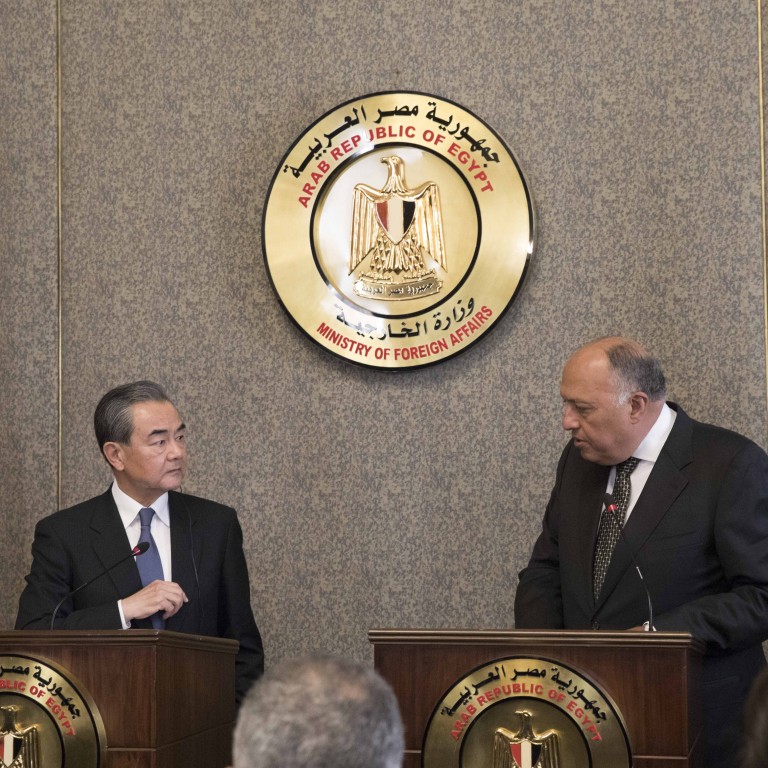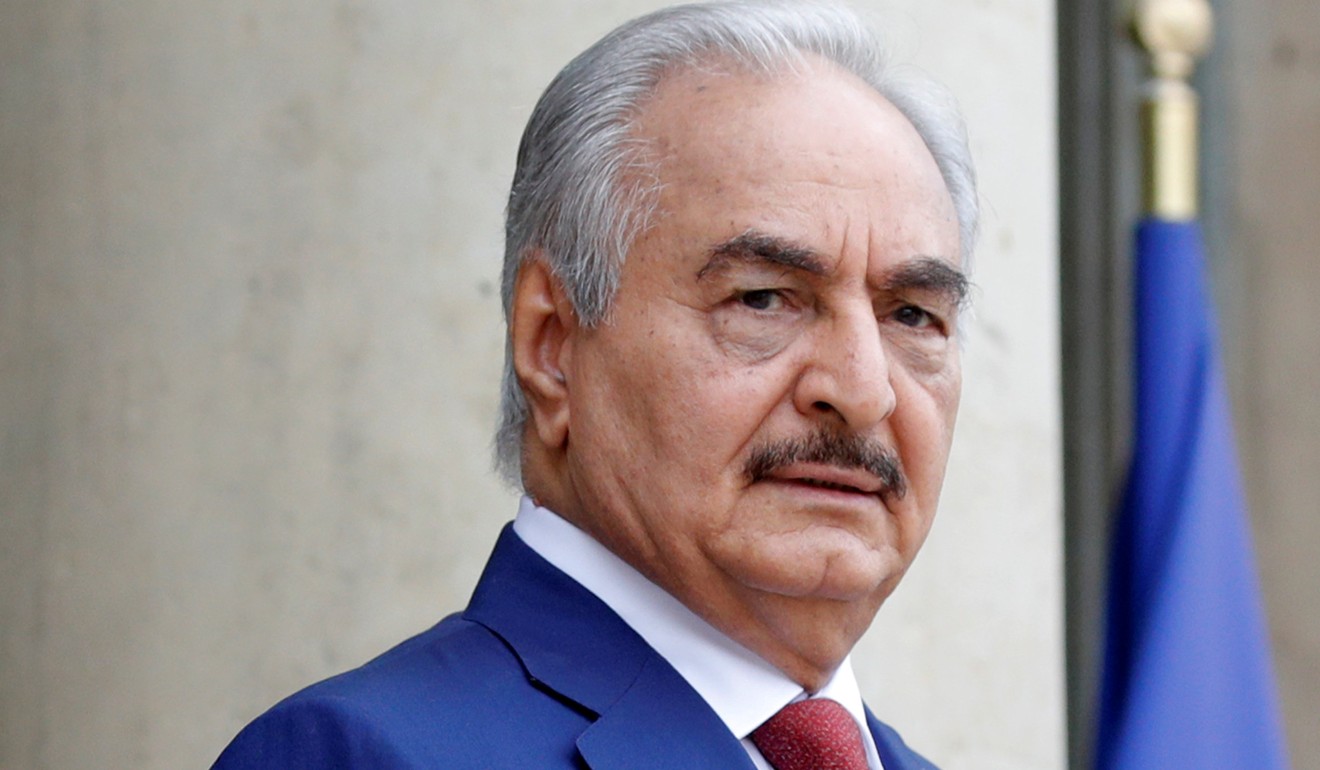
China opposes military intervention in Libya as Turkey decides to send in troops
- Wang Yi begins Africa tour in Egypt with call for UN to take part in Libya peace process
- Foreign minister expected to make stops in Djibouti, Eritrea, Burundi, and Zimbabwe as part of traditional diplomatic tour
In Cairo on Wednesday, Chinese Foreign Minister Wang Yi said military intervention would cause continued trouble for Libya, which has been in turmoil since a US-led Nato intervention removed ruler Muammar Gaddafi from power in 2011.
“China has noticed the recent escalation of tensions in the eastern Mediterranean. We always believe that the Libyan issue can only be truly and properly settled by political means,” Wang said on the Egyptian leg of a trip to Africa.

Besides military support, Turkey has joined the GNA in a maritime alliance, which gives Ankara a say in control of gas deposits in the eastern Mediterranean Sea. The move rattled Egypt, Israel, Greece and Cyprus, which have an eye on those resources.
Egypt also said Turkey’s military intervention would threaten the stability of North Africa.
Libya conflict: strongman’s forces capture strategic coastal city
Wang said Beijing supported a “Libyan-led and Libyan-owned” political process under the UN to help end the conflict. He called on the sides to resume dialogue towards a ceasefire and lasting peace.
“China has maintained contacts with various factions in Libya and actively worked on various parties to facilitate talks for peace,” he said.
His trip, which is expected to include stops in Djibouti, Eritrea, Burundi, and Zimbabwe, is part of a tradition that Chinese foreign ministers make Africa their first excursion of the year, a sign of how highly Beijing values its relationship with the continent.
In Cairo, Wang met Ahmed Aboul Gheit, secretary general of the Arab League, the 22-nation body which rejected what it called foreign interference in Libyan affairs.
Wang also discussed trade, diplomacy, China’s Belt and Road Initiative and Middle East conflicts with Sameh Shoukry, his Egyptian counterpart.
This year marked 20 years since the formation of the Forum on China-Africa Cooperation, through which Beijing has channelled US$143 billion of aid into infrastructure projects, according to data from the China Africa Research Initiative at the Johns Hopkins University School of Advanced International Studies in Washington.
The forum has been criticised by some Western nations, which claim that China’s lending practices are luring poor states into debt traps with money for projects that are not commercially viable.
Syria death toll tops 380,000 in almost nine-year war
“Since the crisis broke out, China has provided a large amount of humanitarian assistance to the Syrian people and has held training programmes on reconstruction, which are concrete actions in support of the reconstruction of Syria,” he said.
The rebuilding of Syria required the collective effort of the international community, but some countries were disrupting it rather than contributing, Wang said without naming them.
Some countries had set preconditions and or blocked other countries’ participation in the process through unilateral sanctions and what he called “long-arm jurisdiction”.

